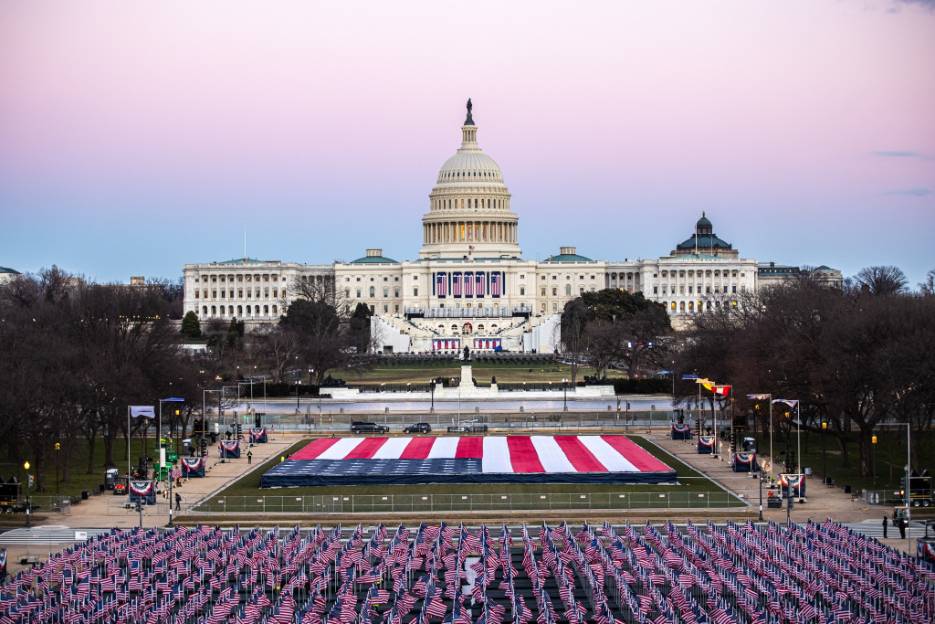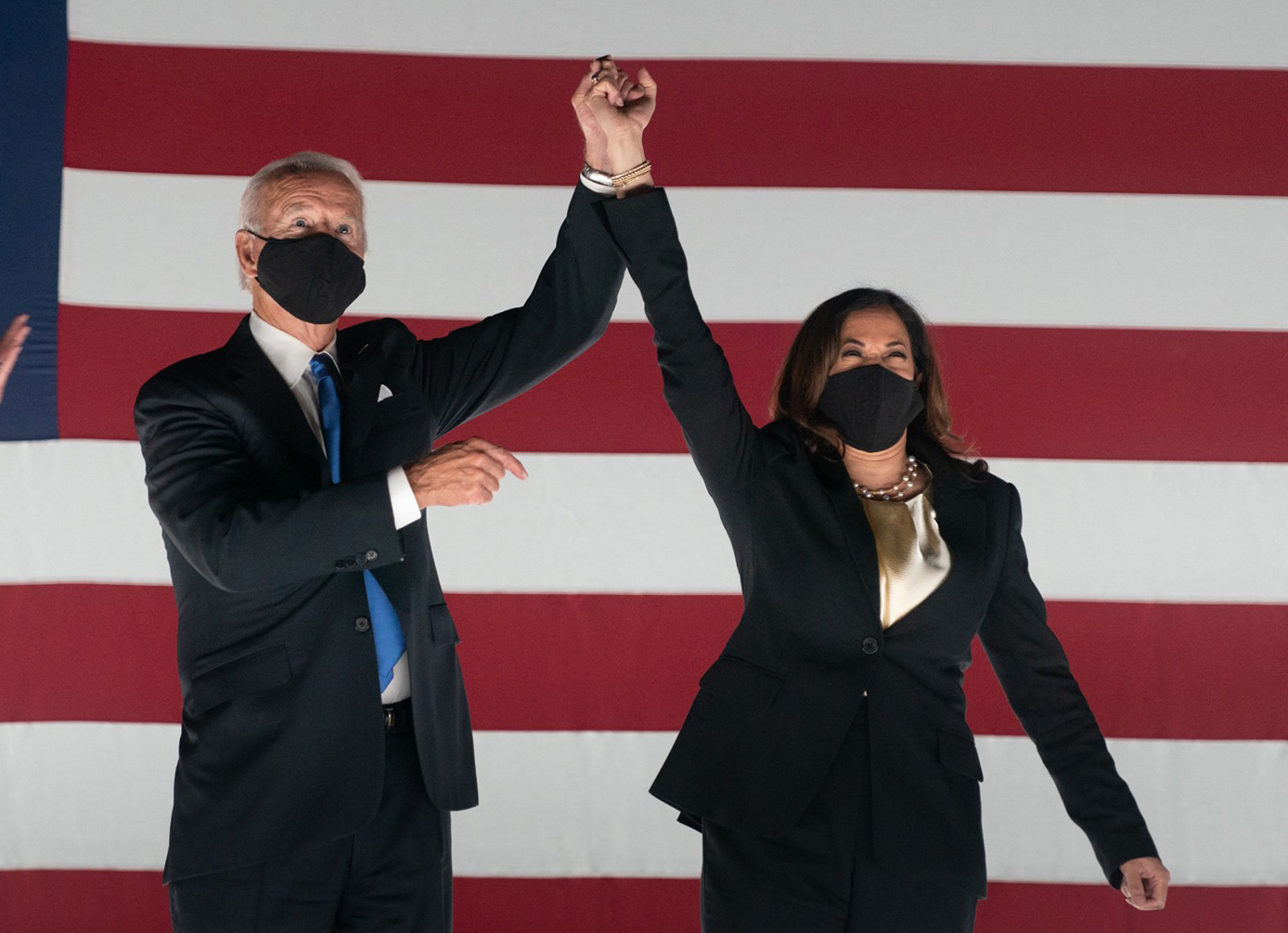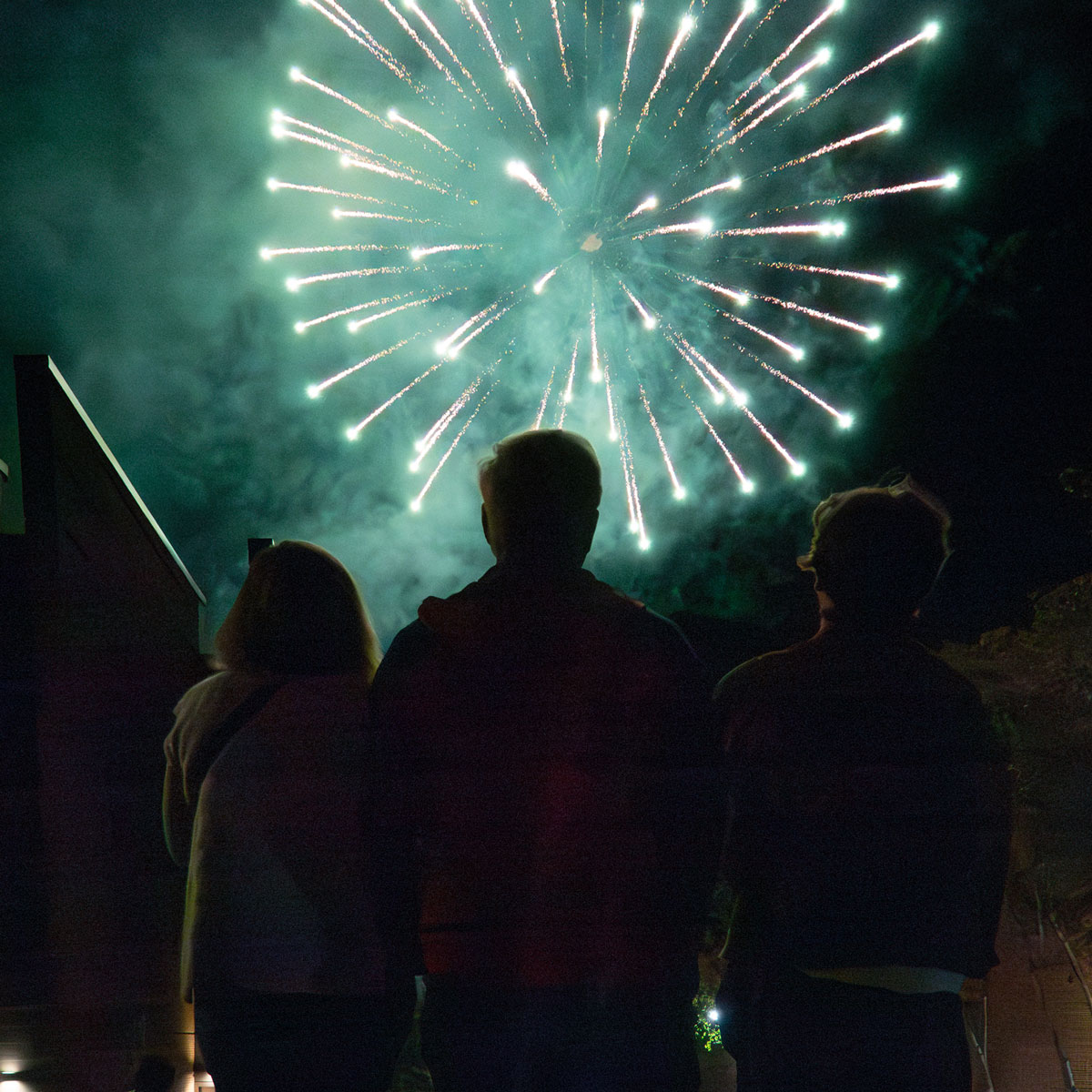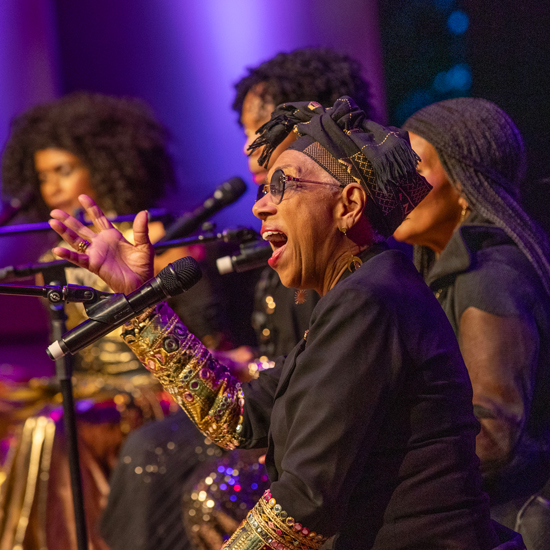From poetry to history, Skidmore faculty offer perspectives on a new presidency

Across disciplines ranging from English literature and history to Black studies and music, Skidmore faculty members offer their own perspectives on the significance of the inauguration of U.S. President Joseph Biden and Vice President Kamala Harris.
Calvin Baker
Visiting distinguished writer-in-residence
What was your reaction to the 'America United' theme?
Perhaps this is obvious, but one only has to appeal to unity so strongly where there is little. In stable times it would have been a banality. In this moment it was cathartic, I believe, for most reasonable people, whatever their politics, but by saying it so forcefully and invoking Abraham Lincoln so frequently, there was an admission of how powerfully the anti-democratic, neo-Confederate sentiment has been activated in recent years.
The second thing that always strikes me when I watch the ritual theater of inauguration is the extent to which words shape this country.
Biden has said repeatedly, 'the president’s words matter,' but that’s an understatement of … the number of registers that we call upon to manufacture authority, inspiration and healing.Calvin Baker
There is the legal register, represented by the Supreme Court justices administering the oath of office. There’s the votive register of the oath itself. Beneath these is the religious register, symbolized by the Bible upon which the oath is taken. In addition, there are the various registers of song, embodied by the performers; the political, historical and noble registers of the speech itself; along with the disavowal of disinformation, propaganda and lies — all false words. Finally, there’s the appeal to the poetic register embodied by the poet laureate, in this case Amanda Gorman, but with its own history, going back to Robert Frost and, more deeply, England.
It’s truly an amazing ritual, built entirely by the layering of text and symbols. One might simply show up with a bunch of generals and admirals and the nuclear football, but that only conveys power not authority, legitimacy or this wonderful sense of grace these occasions usually strive to command. Each of us stands as witness.
As with all rituals it is a transmutation … We cross one of the national thresholds of history in communion, whether we wish to or not. So we come to the last bit of ritual, "America United" is an incantation, a magical, aspirational prayer that, with enough repetition, through the unique way words work, might in fact become real.
Yelena Biberman-Ocakli
Associate professor of political science
What should we think about the exceptional security arrangements in Washington?
An unprecedented 25,000 National Guard troops were deployed for the inauguration. They were there to defend not against al-Qaida, ISIS, Russia or China; they were there to protect the incoming democratically elected president from the outgoing president’s supporters, who had been radicalized by conspiracy theories and rhetoric of elected officials.
It is easy to lament such a state of affairs, but it is also a sign of some potentially big shifts in the distribution of power within American society. The mobilization of far-right radical movements is a reaction to the fact that marginalized people are demanding their share of power and advocating for structural changes. This is happening in the context of extreme income and wealth inequality, inability and unwillingness of the government to provide key public goods, overbearing mechanisms of surveillance and coercion with low accountability, and deep disagreements about what constitutes “reality.”
Where the United States goes from here may be uncertain, but it will still be doing so as a democracy.Yelena Biberman-Ocakli
Political scientists Philippe C. Schmitter and Terry Lynn Karl remind us that democracies are not always orderly, consensual or easy to govern, especially after “serious struggles motivated by high ideals.” They also remind us that what counts is that all parties are “willing, however reluctantly, to play by the general rules.”
Beau Breslin
Professor of political science
What challenges lie ahead for the Biden-Harris administration?
At his inauguration on March 4, 1865, Lincoln faced unimaginable challenges — a gruesome Civil War, the continuing scourge of slavery and the clash of two fundamentally opposing visions for America. He saw his primary role in addressing the nation as providing restorative hope, offering words that might unite the country by finding common ground on a political landscape that was, quite literally, soaked in blood.
Make no mistake: We are experiencing our own Lincolnian moment. The challenges today are certainly less bloody, but they are no less exigent.Beau Breslin
President Biden must navigate a political environment ripe with deep and intractable divisions, infected by widespread fear and mistrust and, yes, even some calls for secession.
There should be no doubt that President Biden’s speech on Wednesday was this country’s most important inaugural address since Lincoln’s. Like Lincoln, Biden must find the words to mend a broken polity. He cannot ignore the millions of Americans for whom Donald Trump is a hero, or the millions who still believe the election was stolen. He cannot ignore the thousands of Republican politicians around the country who are committed to a dramatically different future for America, or the thousands who will work tirelessly to ensure his failure. And he certainly cannot ignore the many members of his own political party who exhibit little faith that their progressive agenda will gain any real traction. The moderate position is rarely a comfortable one. Just ask Lincoln.
Our new president understands what is at stake in this moment; he recognizes that his remarks have announced to the country and to the world, his plan for reconciliation.
John Brueggemann
Professor of sociology and department chair
What did the inauguration reveal about our nation?
Over recent years, trust in nearly every major American institution has been shaken. As we have experienced at least four layered crises this past year (i.e., the pandemic, a failed presidency, an economic disaster and racial strife sparked by state-sanctioned violence against people of color), several important institutions have experienced especially striking losses in credibility.
An exacerbating problem is that a stunning portion of American citizens have been drawn into wildly absurd conspiracy theories that vilify those with whom they have political disagreements.
Presidential inaugurations usually assert reverence for democratic ideals by celebrating free elections and the peaceful transfer of power. They represent an incremental step in the building of trust in our common life. This one involved an urgent affirmation of the need for such trust because we have been edging towards the brink for some time, and recently glanced down into the abyss of a ruined democracy.
On Jan. 6, we were reminded again that it is easier to break things than to build things.John Brueggemann
In this context, I believe that during this particular civic ritual many Americans were grieving the losses we have endured: the loss of life, especially, as well as decency, honesty, fairness and trust. The inauguration reminded us of what we have been through, what has been broken.
At the same time, many, perhaps most, Americans experienced in this ceremony a sense of hopefulness as a first step that might be followed by many more on the long journey towards restoring some of the good things in our nation, towards something beautiful we could build together.

Patrick Campbell
Visiting assistant professor of political science
What was the overall political message that Biden was trying to convey?
President Biden’s message of unity was a welcome change in tone from the inaugural address four years ago. Presidents have often called Americans together to overcome a crisis. President Biden’s message, however, was a response to the extraordinary polarization we now experience and, as such, was a call for unity not to fight a foreign foe or an existential challenge but to fight the political virus that has damaged Americans’ ability to reason.
Will his message of unity resonate? It will, among those Americans wishing to receive it.Patrick Campbell
But in casting the world as one composed of “truth and lies,” President Biden is not setting himself up well for success. Polarization is not driven by the truth meeting lies, it is driven by truth misappropriated and torn from context. If a fact admits of three interpretations, we will take the one that best fits our biases, reassuring us that we really are “part of the solution,” and not the problem.
The evidence shows that many Americans are triggered into opposing political tribes, each defending its view of reality against any challenger. Those who choose not to join in this political combat walk the “no-man’s land” between the ideological trenches, ducking fire.
If President Biden wishes to unify the nation, he must be ready to walk that difficult ground. It does not mean giving credence to the outlandish theories that accompanied many of the Capitol Hill rioters, but it does mean acknowledging the economic, social and political factors that encourage those theories to grow, while remaining steadfast in asserting enduring American principles of equality, liberty and justice.
Jennifer Delton
Professor of history
What do you understand the historical significance of this inauguration to be?
The ceremony symbolized perfectly the final stage of the Democratic Party’s long, drawn-out transition from its old manufacturing-era union base to a younger, multiracial, multiethnic, more female, cross-class configuration tied to a neoliberal trade and finance-based economy.
On a stage brightened by women’s coats, Supreme Court Justice Sonia Sotomayor administered the oath of office to Vice President Kamala Harris, the first woman and person of color in that position, surrounded by her multiracial family.
The young, vibrant Amanda Gorman told us the nation isn’t broken, only unfinished.Jennifer Delton
And Joe Biden, an old labor Democrat from the 20th century, presided over it all — an inspiring ceremony for liberal Democrats , who were loosely (and momentarily) united in the aftermath of four years they considered a nightmare.
But just as significant, if not more so, were the large numbers of people — fellow Americans — not watching the ceremony, not inspired, not happy, and many not even believing that Biden was legitimately elected.
Lisa Grady-Willis
Visiting assistant professor and associate director of Intergroup Relations
What does Kamala Harris’ inauguration as vice president mean for this country?
Due to the heartbreak of COVID-19, there are those of us who cannot see beyond our front doors to the steps of the White House and the Capitol. Yet, there are others who desperately seek to revel in this moment — in large part due to the historic election of Kamala Harris.
Which first comes first? Woman? Black? South Asian? Historically Black university grad? Which cultural nods are most significant? Her pearls? Her purple? Her pantsuits?
As folks struggle with how to describe Vice President Kamala Harris, our prioritization of identities and expectations reminds us that there is much work to be done.Lisa Grady-Willis
What we witnessed during the inauguration of Kamala Harris was more than just symbolic and greater than just an individual achievement. There is a continuity of thought, passion and possibility that links Madame Vice President to 1972 presidential candidate Shirley Chisholm. Though Chisholm is often forgotten among electoral politics trailblazers, the title of vice president ensures that Harris’ voice, image and existence will not be denied in the years to come. Equally significant is the reality that parents across America can now speak with integrity and conviction when they tell their daughters that one day they could become president of the United States.
Maggie Greaves
Assistant professor of English
What should we take away from the poetry reading?
It’s symbolic that a poetry reading happened at all during this inauguration. The reading indicates a return to a more intellectual time, as well as a renewed investment in “truth” and America’s “soul,” lofty concepts long considered the domain of poetry. The choice of Amanda Gorman as the inaugural poet also carries symbolic burdens.
As a Black woman and the 'first' national youth poet laureate, Poet Laureate Amanda Gorman parallels the 'firsts' accomplished by Vice President Kamala Harris.Maggie Greaves
Gorman’s youth, moreover, conveys the optimistic promise of America as a young nation, “a nation that isn’t broken / but simply unfinished.”
Poets don’t regularly make appearances at presidential inaugurations (and have done so, in fact, only for Democratic presidents). Gorman is one of only six poets ever to have performed at one. Half of these poets –– Maya Angelou, Elizabeth Alexander and Gorman –– have been Black women (the other three, white men). The prominence of Black women in these political ceremonies speaks to the historic pressures African American poets have faced to represent a collective in their verse rather than to speak as an individual.
With its rhyme, alliteration and anaphora, “The Hill We Climb” emphasizes poetry’s oral, incantatory dimension, its spell-like properties meant to bind an audience together in a shared experience. The poem captures President Biden’s message of “unity” without suggesting that “we the people” are all having the same experience in and of this country. In that sense, Gorman offers a collective “we” but also a challenge to each individual.
Tom Johnson
Visiting assistant professor of music
What did the music performances say about the moment?
Listening with an optimistic ear, I heard hope in the music from Wednesday’s presidential Inauguration. Three musicians from different backgrounds celebrated what recently seemed impossible: a just and inclusive future. The national anthem was sung by Lady Gaga, an advocate for LGBTQI+ rights. J. Lo’s “libertad y justicia para todos” defiantly rebuked an outgoing president who directly harmed immigrant communities through his words and actions. As we count our pandemic dead in the hundreds of thousands, this shared live music reminded me that we cannot do without beauty, as Toni Morrison said, any more than we can do without dreams or oxygen.
The new president campaigned on familiarity, which the inauguration musicians vividly embodied.Tom Johnson
But we can’t let the temporary respite of apparent stability, nostalgia or hope obscure our present reality. As the marine band dutifully tooted its 19th-century imperialist marches on the grounds where violent insurrectionists sowed death a fortnight prior, I couldn’t help but hear the inaugural music as a familiarly empty paean to reconciliation.
Are we any closer to unity listening to Garth Brooks sing “Amazing Grace” than we were five and a half years ago when Obama mourned Rev. Clementa Pinckney with the same song?
Editor’s note: The professors’ comments have been edited for length and reflect the views of the authors.


